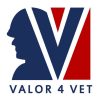
A “nexus” is a legal term that means connection or link.
That connection or link is vital to veterans seeking to make a claim for an injury or medical connection that was caused or the result of an in-service event. That connection or nexus is documented by a medical expert in a letter called—that’s right— a Nexus Letter.
The nexus letter is drafted by a medical professional that specifically links the in-service event to the claimant’s current medical condition.
To receive benefits, a veteran must satisfy three eligibility tests. He or she must to show:
- Eligibility by military service,
- The diagnosis of a “condition”; and
- Evidence that the condition began during the vet’s military service or—if the vet had a preexisting condition—that it was aggravated by military service.
It’s this third test that requires a connection or nexus between what occurred to the veteran in the military and his or her current medical condition.
Let’s look further at the benefits of a nexus letter.
When to Submit a Nexus Letter
A nexus letter can be submitted with a claimant’s initial application, anytime during the claim process, or after an adverse C&P (Compensation and Pension ) exam.
The C&P Exam is an examination performed by a physician who works for or is contracted by the Veterans Administration who’s tasked with documenting the current severity of a vet’s condition under consideration for VA disability.
As you can imagine, if there’s any question as to which way this physician will decide in a close call, remember who’s paying him!

It’s clear that if there’s conflicting or unclear medical evidence, the VA will favor its own examiner’s conclusions.
These VA examiners are more familiar than a private physician with the terms that the Veterans Administration uses in deciding a claim. VA regulations require only that it be “at least as likely as not” that a condition is related to service for an award. That means a veteran must prove that there’s at least a 50-50 chance of a nexus or connection.
Given this hurdle, a veteran needs to “stack the deck” in his or her favor as much as possible in this process. A nexus letter from an experienced private physician will be crucial to respond to the C&P examiner’s adverse conclusion—where the VA examiner says that the connection isn’t apparent or when first submitting a claim.
While the nexus letter can be submitted at any point, it’s best to submit a professionally-drafted nexus letter as early in the process as possible. A nexus letter is critically important in cases where a claimant hasn’t submitted any medical evidence, and a C&P examiner finds that there’s no link between the claimant’s condition and his or her military service. It’s easy to see that without a compelling nexus letter, the claim will be denied.

Further, a denial can happen even when a vet provides a thorough record of supporting medical evidence with his or her application. Again, the VA frequently will go with the opinion of the VA examiner despite the veteran’s evidence to the contrary, so a supportive nexus letter can be a deal-breaker.
To have the best chance for a successful claim, a veteran should seek the services of experienced medical experts who know VA disability law and can write a persuasive nexus letter that exceeds the VA standards. A visit to a veteran’s primary care doctor or general practitioner is unlikely to do the trick. While that physician may be willing to help with the request, a doctor seeing all sorts of different patients doesn’t have the experience with the claims process of the Veterans Administration, and the letter they write most likely won’t be compelling. This could doom a veteran’s claim for benefits.
There are also physicians who will conduct a records reviews and/or an Independent Medical Examination (IME) and provide a nexus letter to a veteran. But these specialists are extremely expensive. And the fees are paid in advance without an opportunity to review the letter, so there’s no guarantee that this physician is truly well-versed in VA law and claim procedures and there’s no guarantee that the report will reflect what is needed for the veteran to be successful in their claim.
Instead, veterans should leverage the extensive expertise of the Valor 4 Vet team—a group of medical experts that understand and practice daily in this area. By partnering with the Valor 4 Vet team, veterans will be miles ahead in their quest for benefits and have a much greater possibility of a favorable result.

To increase your chances of your claim getting approved and you are getting what you are paying for, you should have a well-written and compelling nexus letter by Valor 4 Vet. The Valor 4 Vet team can draft a nexus letter for you and help you to “stack the deck” in your favor.
Updated March 17, 2020







